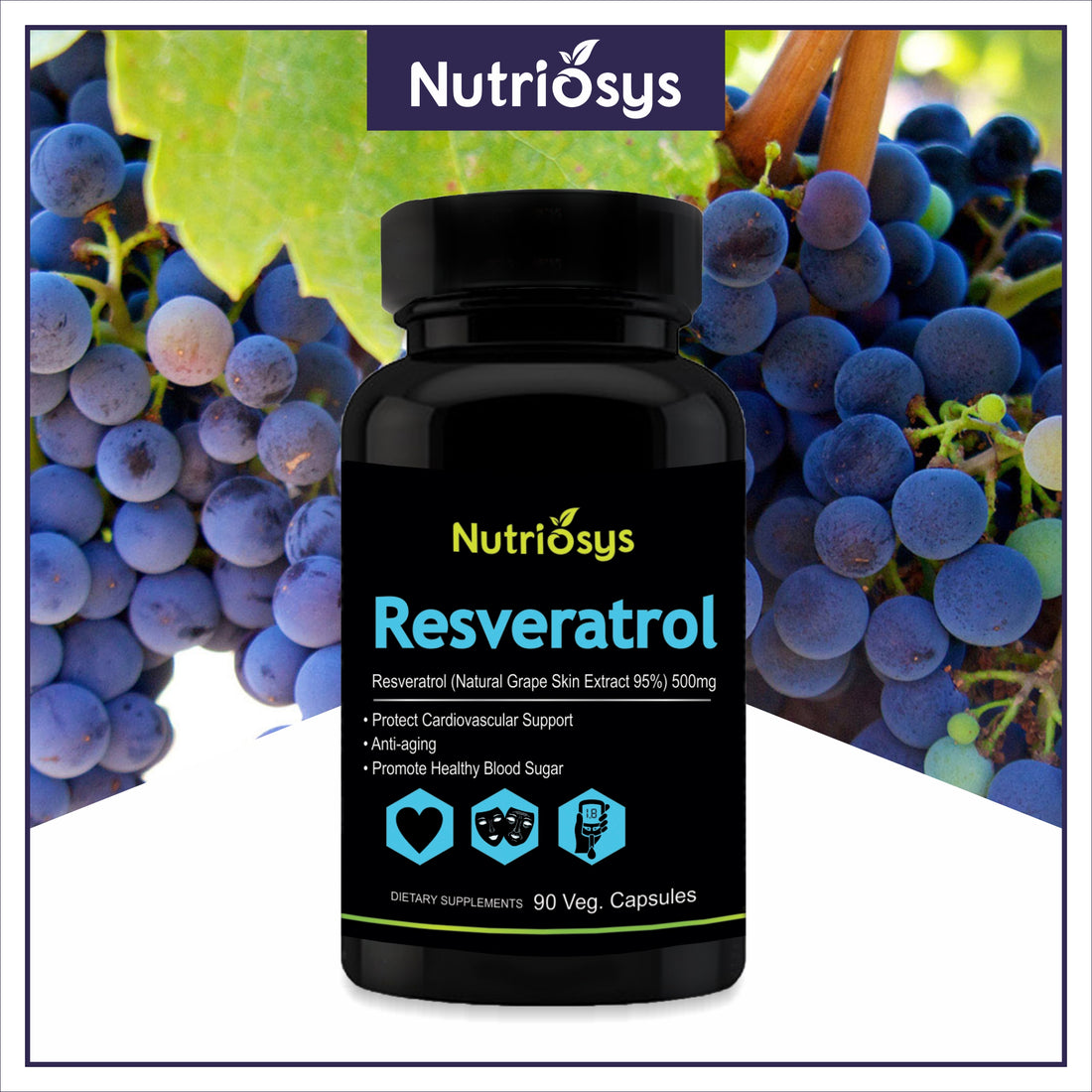Health Benefits of Resveratrol
Polyphenols like resveratrol are important to protect the body from free radical cellular damage. Free radicals form in the body naturally when your body breaks down food, you breathe in cigarette smoke, or if you are exposed to radiation. They are unstable and attack cells. They are also responsible for the development of some age-related diseases.
Resveratrol can prevent these common conditions:
Cancer
Many studies indicate that resveratrol could help prevent and treat certain types of cancer. Its anti-tumor effects include inhibiting cancer cell growth, cell signaling, angiogenesis, and promoting cell death.
Studies have found that resveratrol negatively affects cancer at all stages of development. Most importantly, researchers have found that resveratrol makes chemotherapy more effective by blocking chemotherapy-resistant proteins.
Cardiovascular Disease
Numerous studies have explored resveratrol’s role in preventing and managing cardiovascular (heart-related) disease. Resveratrol exhibits protective effects against blood vessel damage. Studies also show that it lowers cholesterol levels and prevents blood clots.
Many researchers have concluded that resveratrol is a valuable micronutrient that can prevent heart disease in those at risk and help treat people with progressing cardiovascular conditions.
Dementia and Alzheimer’s Disease
The anti-inflammatory properties of resveratrol are effective in controlling inflammation throughout the body, including the brain. Neuroinflammation (inflammation of parts of the nervous system) is one factor that contributes to the progression of brain-related problems, such as Alzheimer’s disease, dementia, and multiple sclerosis.
One study followed participants with Alzheimer’s disease for 52 weeks to observe the therapeutic effects of resveratrol. One control group received a placebo, while another received resveratrol. For the group with the placebo, neurological biomarkers continued to decline over the observational period. However, the group receiving daily doses of resveratrol saw stabilization in those same biomarkers.
While further study is needed, the outcome of this study seems promising for the use of resveratrol in the future.
Diabetes
Resveratrol has demonstrated health benefits for people with Type 2 diabetes in several studies. For example, researchers commonly see improvements in serum lipid (cholesterol) and glucose (sugar) levels after treating test subjects with resveratrol.
The studies show that resveratrol reverses insulin resistance, lowers blood sugar levels, and even lowers elevated blood pressure, a condition many people with diabetes have.

